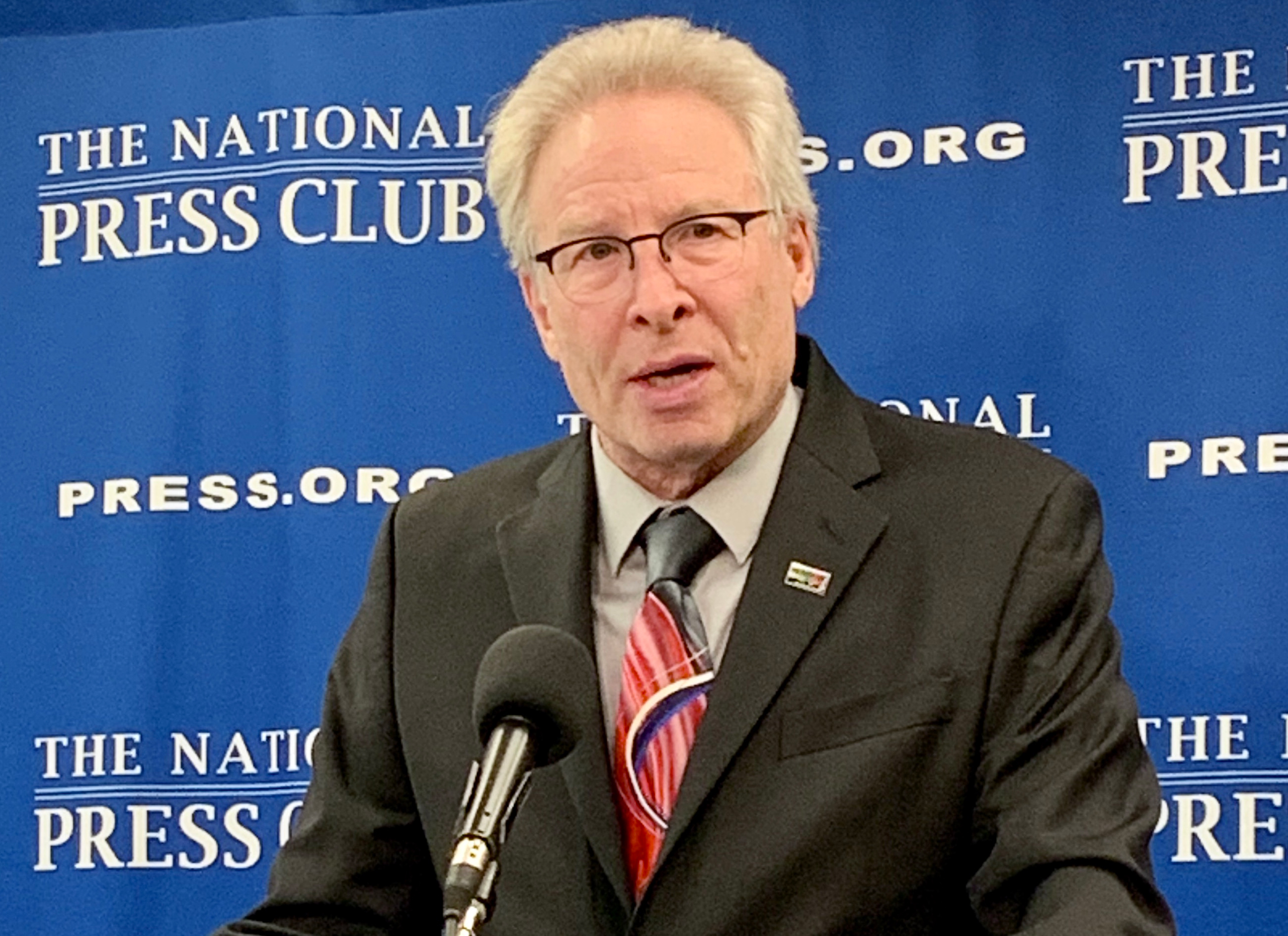Section 230: When Policy Becomes Personal
The smarter way to stay on top of the multichannel video marketplace. Sign up below.
You are now subscribed
Your newsletter sign-up was successful
The debate over Section 230 of the Communications Decency Act has become a hot topic in Washington, D.C.
Section 230 is the provision that allowed Facebook, Twitter and other social media platforms to grow without fear of endless liability lawsuits over their content, whether it’s offensive material they failed to take down or content they concluded was not fit for their platforms and did scrub.

But while policymakers debate the implications for business models and regulatory frameworks, it is a very personal issue for Andy Parker, who would have preferred not to have become part of the debate at all.
Parker’s daughter, Alison, a TV reporter at WDBJ Roanoke, Virginia, was murdered almost five years ago (by a former reporter for the station) during an on-air interview, along with photojournalist colleague Adam Ward. GoPro footage of the incident shot by the killer himself is available on YouTube, often edited to enhance the shock value, Parker told the Federal Trade Commission in a complaint alleging YouTube violates its own terms of service. Then there were the videos that claimed the shooting was a hoax and Andy a paid actor playing her father.
In order to get the videos taken down, Parker said, he must watch each one of them and then report it.
YouTube Efforts Misleading: Parker
Parker said YouTube is deceiving its users by claiming to police the site for violent and disturbing videos. “If consumers knew just how ubiquitous violent content is on YouTube, how very likely they and their children are to encounter that content, or how they the consumer bears the burden of policing the site for this content, they would not use the platform,” he said. The FTC is empowered to take action for false and deceptive conduct.
The smarter way to stay on top of the multichannel video marketplace. Sign up below.
Then, he said, there is the pain of “knowing others are deriving pleasure and profit” from the death of his daughter and other “moment of death” videos. He pointed to the fact that YouTube takes in $16 billion to $25 billion a year in ad revenue “before, between and within videos.”

Parker said Section 230 might not have to be completely eliminated, though he wouldn’t mind if it was. “But at the very least it needs to be amended.” Legislation can be narrow and focus on graphic images and video of murder, targeted harrassment or hate speech, he said.
If there is still such a thing as bipartisanship, Parker said, it ought to be able coalesce around that.
“Our Community Guidelines are designed to protect the YouTube community, including those affected by tragedies,” a YouTube spokesperson said. “We specifically prohibit videos that aim to shock with violence, or accuse victims of public violent events of being part of a hoax. We rigorously enforce these policies using a combination of machine-learning technology and human review and, over the last few years, we’ve removed thousands of copies of this video for violating our policies. We will continue to stay vigilant and improve our policy enforcement.”
As to its profiting from violent videos, a YouTube source on speaking background said the platform would not allow ads to run in “sensitive events,” even if it is legitimate news coverage, or in video that suggests a tragic event did not happen.
In 2017, YouTube updated its harassment policy and removed flagged videos that target the victims and their families, the YouTube source said, although Parker pointed out that the flagging process means family members must watch the videos and then flag them. That includes content claiming an event didn’t happen.YouTube continues to train machine detection systems to try to get the videos down, the source said.
Also as part of its update of hate speech policies, YouTube has assigned “protected status” to victims of violence and their immediate families.
Parker is trying to get the FTC to help with the videos of his daughter, but he is looking more broadly at the Section 230 liability that prevents YouTube and other social media platforms from being civilly liable for content posted like third parties.
“Filing the FTC complaint is the only legal recourse we have until Sec. 230 is either revoked or amended,” Parker said.
Sentiment for Change Rising
There definitely appears to be a receptive, bipartisan audience for doing something. Republicans want Big Tech to be liable for what they argue is the censorship of conservative speech by liberal Silicon Valley companies, while Democrats are worried about third parties using Facebook to meddle in elections.
For example, former vice president and Democratic resurgent presidential candidate Joe Biden told The New York Times he thought Section 230 should be revoked, saying that “it is propagating falsehoods they know to be false.”
House Speaker Nancy Pelosi tried unsuccessfully to exclude Section 230 language from the just-passed USMCA trade deal among the United States, Mexico and Canada.
Sen. Mark Warner (D-Va.), co-chair of the Senate Intelligence Committee and himself a former tech executive, has said Section 230 may not make sense anymore now that half the country gets its news from Facebook. "Suddenly, that 1990s framework might not be exactly right," he told The Atlantic magazine, citing the “arrogance” of the edge.
Even the provision’s author, Sen. Ron Wyden (D-Ore.), has issues: "I just want to be clear,” he said at a Hill hearing last year, “as the author of Section 230, the days when these ‘pipes’ are considered neutral are over, because the whole point of 230 was to have a shield and a sword, and the sword hasn’t been used."
“I think this will kick-start legislation to move forward,” Parker said.
Contributing editor John Eggerton has been an editor and/or writer on media regulation, legislation and policy for over four decades, including covering the FCC, FTC, Congress, the major media trade associations, and the federal courts. In addition to Multichannel News and Broadcasting + Cable, his work has appeared in Radio World, TV Technology, TV Fax, This Week in Consumer Electronics, Variety and the Encyclopedia Britannica.

